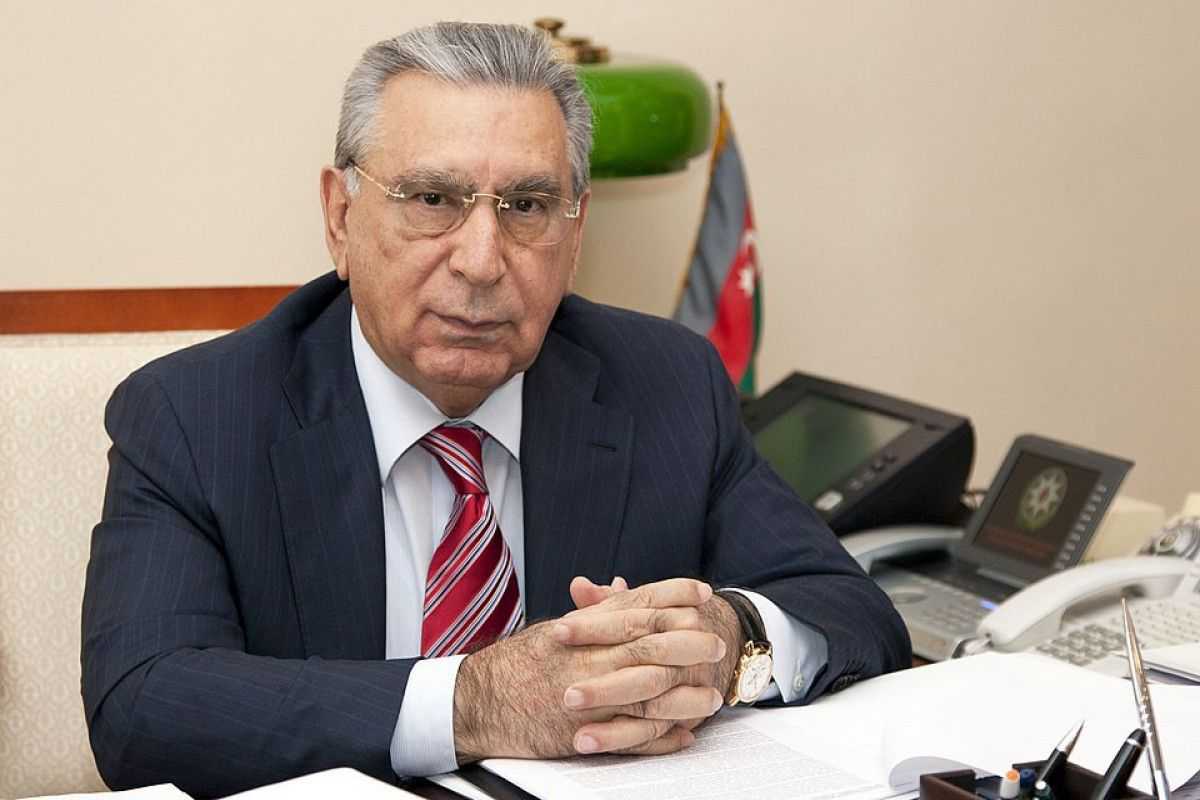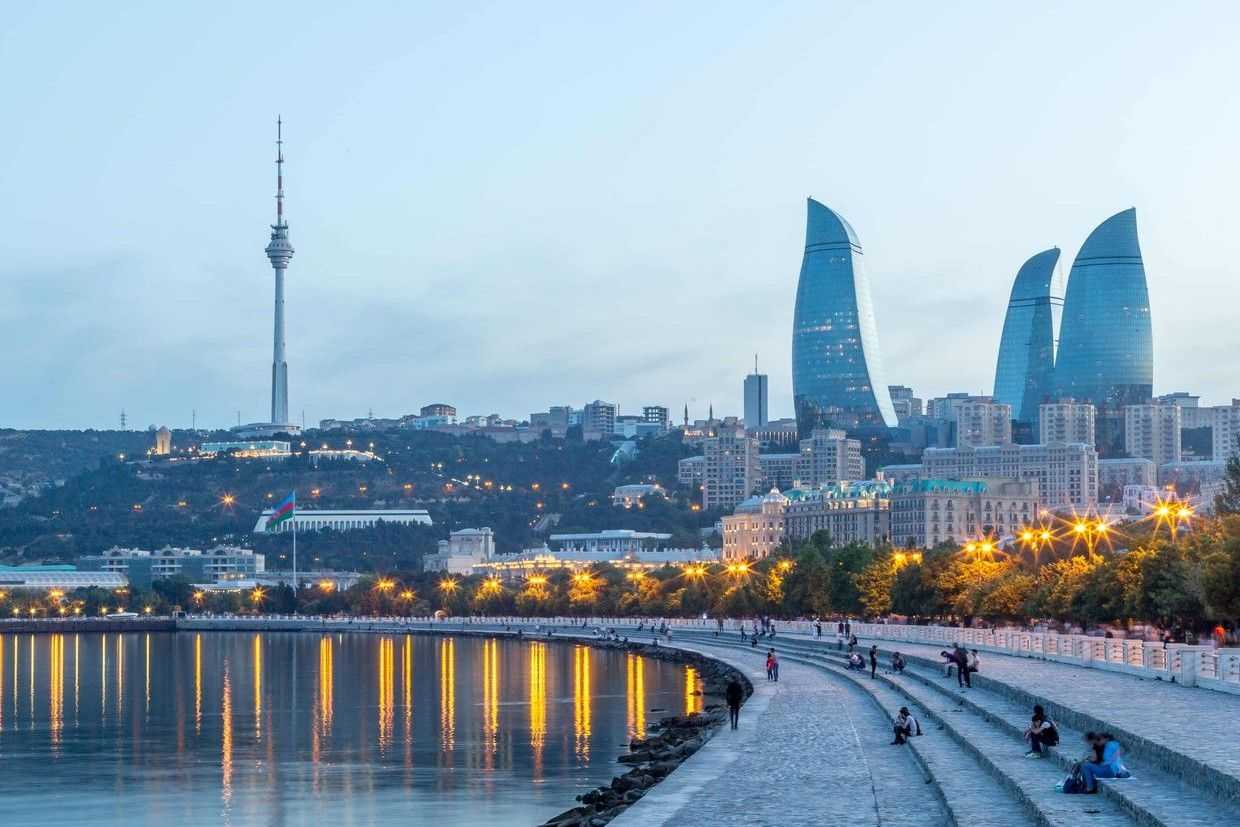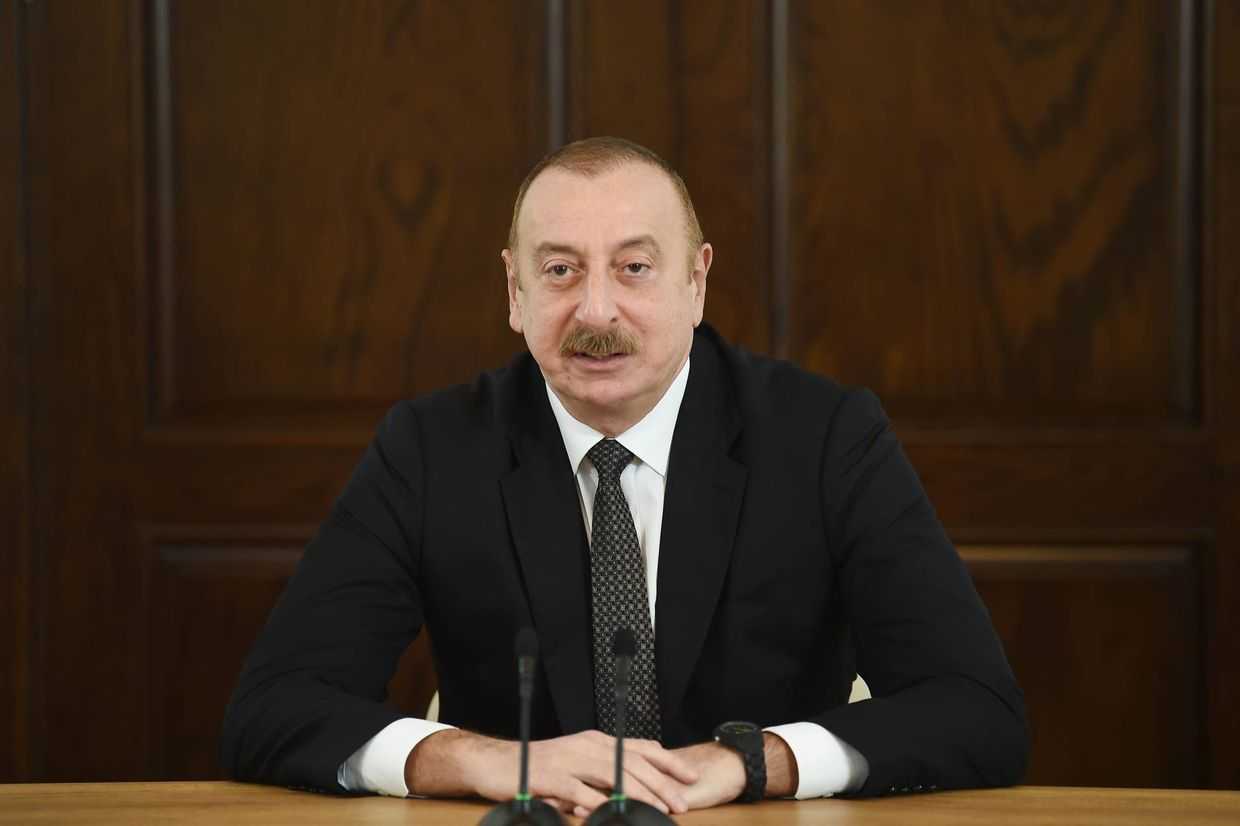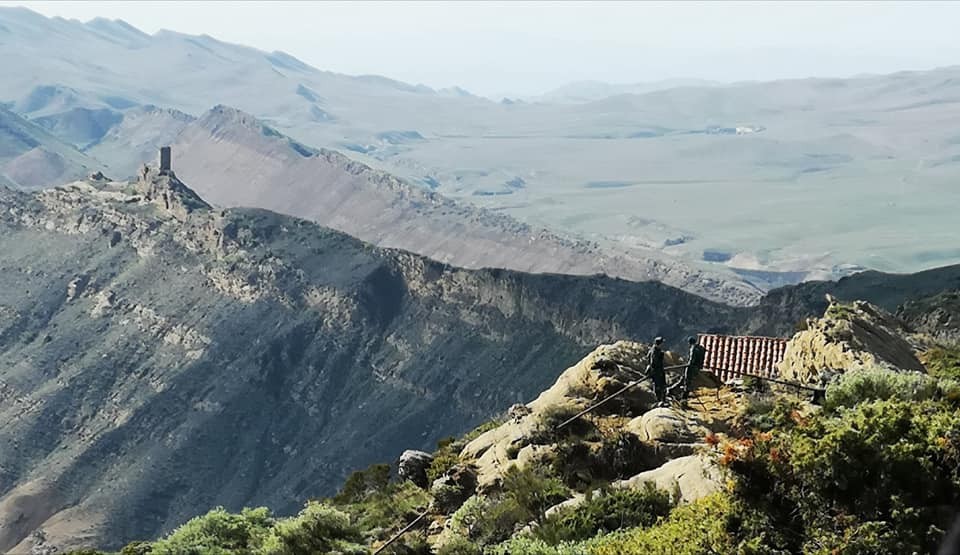
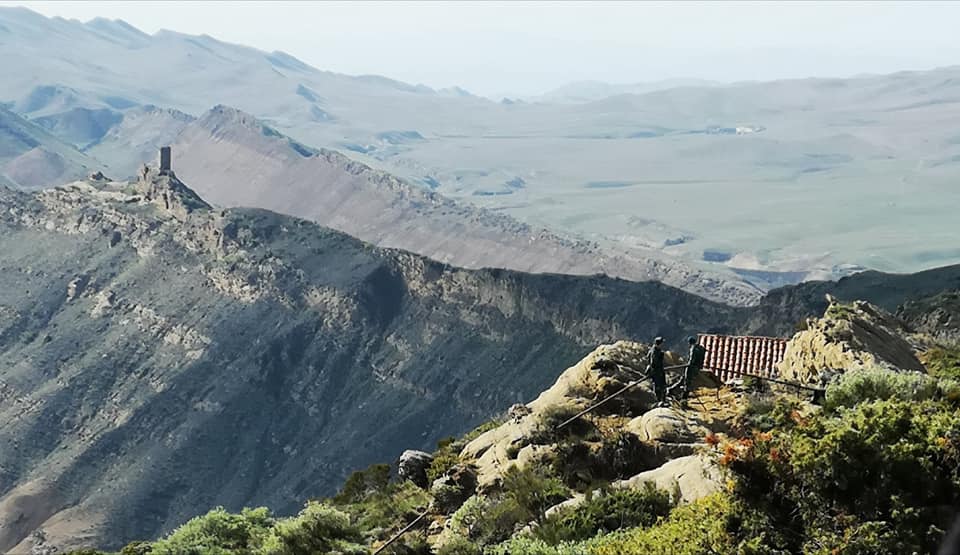
Azerbaijan has restored access to Udabno Monastery, a part of the Davit Gareji Monastery Complex at the undelimited Azerbaijani-Georgian border in southeastern Georgia. Visitors and clergy were barred from reaching the monastery for several days by Azerbaijani border guards.
Georgia and Azerbaijan share a 480-kilometre long border, a third of which has not yet been delimited. The monastery is situated on the undelimited border between the two countries.
The ban followed a visit by Georgian President Salome Zurabishvili to the area on 20 April, where she met Georgian border guards and said that ‘the issue of border delimitation, which can no longer wait, should be resolved as soon as possible’.
Today, I had the chance to visit the Davit Gareja Monastery Complex, where I saluted our proud border guards. We must solve the delimitation of our borders in a timely manner. pic.twitter.com/6t8WshnNGY
— Salome Zourabichvili (@Zourabichvili_S) April 20, 2019
On 24 April, local resident Zviad Ananiashvili posted on Facebook that it had been three days since pilgrims and other visitors had been blocked by Azerbaijani border guards from reaching the Udabno Monastery.
Udabno Monastery is a part of the Orthodox Davit Gareji Monastery Complex, which was founded in the 6th century. The complex includes hundreds of cells, churches, and chapels carved into the rockface.
On 25 April, Archimandrite Kirion told Georgian news agency InterPressNews that Azerbaijani border guards, who ‘were prohibiting clergy from reaching monasteries and churches’ were paving paths and setting up no-entry signs.
Later that day, the Georgian Foreign Ministry confirmed that access to the hill leading to Udabno Monastery had been barred.
Foreign Ministry spokesperson Vladimer Konstantinidi said that the process of boundary delimitation has been put on pause due to a personnel change within the delimitation commission, which was set up in 1994. He said that the process would proceed as soon as personnel were renewed.
Georgian Foreign Minister Davit Zalkaliani said that they contacted their Azerbaijani colleagues and that ‘the situation had been settled for now’.
‘The Azerbaijani Government made a decision to open the points which have been closed’, said Zalkaliani, before elaborating that ‘such incidents’ had happened before.
‘You are aware that such incidents have happened before, but it’s important to reiterate that due to active communication with Azerbaijani partners this problem is resolved for the moment’, Zalkaliani said.
Officials have not specified for how long the issue has been resolved, and according to Rustavi 2, the ban may resume after Easter. According to them, Azerbaijani border guards said the ban had been lifted only for the Easter period and that it was possible it would resume from 5 May.
The Azerbaijani Foreign Ministry did not respond to a request for comment.
Protest after ban
Protests over the ban were held both at the Monastery and in front of the Azerbaijani Embassy in Tbilisi.
On 26 April, Georgian tour guides gathered outside the embassy in Tbilisi with the message ‘Gareja belongs to us’.
‘With this demonstration, we are making the point that Gareja has no other motherland but Georgia’, Nino Japaridze, one of the protestors said, according to Radio Tavisupleba.
Another demonstration followed on 27 April at Davit Gareji, where a group of protesters said that a ‘temporary lift of the ban doesn’t mean the problem has been resolved’.
Nino Burchuladze, another protestor, told Netgazeti that demonstrations would continue unless the Georgian Government took adequate measures to resolve the issue.
The issue of the undelimited border was brought up by president Zurabishvili during her visit to Azerbaijan in February.
After meeting with Azerbaijani President Ilham Aliyev, Zurabishvili noted that Georgia and Azerbaijan ‘should finally define their mutual border’.
Currently, visitors are able to reach Udabno Monastery unhindered, however, Archimandrite Kirion noted there was an enlarged presence of Azerbaijani border guards at the scene.
Kirion told Rustavi 2 that ‘previously, there used to be two of them, while now there are approximately 18 border guards’.
Concerns of escalation
Several Georgian MPs expressed concern over developments at the Davit Gareji Monastery Complex.
Davit Chichinadze from the ruling Georgian Dream Party said that ‘despite warnings from the clergy, the Georgian Government had not reacted at all to the developments, which means that Georgian law enforcement no longer cares about state security’.
He elaborated that ‘in light of all these problems, Georgia looks very vulnerable’.
Sergo Ratiani, an MP from the opposition United National Movement Party (UNM) said that ‘discussing delimitation without prior preparation was equal to provoking Azerbaijan’.
‘It is important for the government to do everything to resolve the conflict and this issue’, said Ratiani.
MPs from the Alliance of Patriots Party were more critical of the Georgian Government’s response to the ban.
Emzar Kvitsiani said that Interior Minister Giorgi Gakharia should be summoned before parliament to explain himself.
‘It’s a fact that Azerbaijani border guards crossed the border and nobody responded to them. I’d like to know what guidelines our border guards use today, why does this happen?’, Kvitsiani asked.
Some MPs expressed concern that their colleagues’ comments could lead to tensions between the two countries.
Savalan Mirzoev from Georgian Dream said that ‘the statements made by several former or acting politicians were totally irresponsible by which they are artificially making the situation tense’.
Political scientist Zurab Davitashvili said that it would take more than political efforts to convince Azerbaijan that Davit Gareji is a Georgian cultural monument and not Caucasian Albanian, as some Azerbaijani historians claim.
On 29 April he wrote on Facebook that in 1921, 3 of the 16 monasteries of Davit Gareji fell into the possession of Soviet Socialist Republic of Azerbaijan because Georgian Bolsheviks gave them up.
‘Azerbaijan is making a critical step and it’s backed by legal grounds’, wrote Davitashvili.
He said that Georgia should try to persuade Azerbaijan to give the three monasteries to Georgia in exchange for other Georgian lands. At a minimum, he said the Georgian government should ensure that clergy and tourists are not hindered from reaching these three monasteries.



